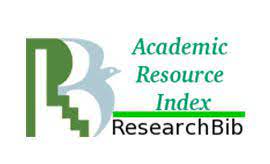The ontological approach to Internet knowledge portals design
DOI:
https://doi.org/10.51707/2618-0529-2020-18-04Keywords:
Internet knowledge portal, ontology, structuration, knowledge, information resources, model, class, relations.Abstract
The paper presents the approach to Internet knowledge portals design based on ontologies. Internet knowledge portals provide users with access to heterogeneous loosely coupled data and information resources of various subject domains. Using such portals as a single access point greatly simplifies the work with information presented on the Internet. In the case of Internet portals representing engineering subject domains information their environment concentrate not only information resources and data, but also a large number of computing resources and web-services that are used to perform certain calculation tasks of engineering subject domains. The ontological approach to Internet knowledge portals design allows to represent and integrate heterogeneous information and computing resources in the process of such portals data and knowledge structuring and systematizing. It is proposed to use ontology as portal knowledge representation model. The Internet knowledge portal general ontology is represented by a system of four interconnected components. The structure of such a system is described, the basic elements of its ontologies, as well as the relations between them, are distinguished. The ontology elements are formalized that allows to organize and optimize semantic search through the Internet knowledge portals information space.
References
Butova, R. K. & Ghavrylova, A. A. (2010). Zastosuvannja suchasnykh informacijnykh tekhnologhij dlja stvorennja system upravlinnja korporatyvnymy znannjamy [Modern information technologies application for corporate knowledge management systems development]. Systemy obrobky informaciji — Information processing systems, 7, 106–112 [in Ukrainian].
Comparing Nanotechnology Web Portal Requirements Using a Kano Method / S. Bae and oth. Journal of Information Science Theory and Practice. 2017. № 5. P. 17–32. DOI: 10.1633/JISTaP.2017.5.2.2
Methodologies and Methods for Building Ontologies (2004). In: Ontological Engineering. Advanced Information and Knowledge Processing, London, Springer. P. 107–197. DOI: 10.1007/1-85233-840-7_3
Changrui Y. & Yan L. (2012). Comparative Research on Methodologies for Domain Ontology Development. In: D. Huang, Y. Gan, P. Gupta, M. M. Gromiha (eds). Advanced Intelligent Computing Theories and Applications. With Aspects of Artificial Intelligence. Lecture Notes in Computer Science. Berlin, Springer, 6839. P. 349–356. DOI: 10.1007/978-3642-25944-9_45
Guarino, N. (2012). The Ontological Level: Revisiting 30 Years of Knowledge Representation. In: Lecture Notes in Computer Science. P. 52–67. DOI: 10.1007/978-3642-02463-4_4
Gavrilova, T. A. & Horoshevskij, V. F. (2001). Bazy znanij intellektualnyh sistem [Knowledge bases of intellectual systems]. SPb. : Piter [in Russian].
Sowa, J. F. (2010). The role of logic and ontology in language and reasoning. In Theory and Applications of Ontology: Philosophical Perspectives, Berlin, Springer, Chapter 11. P. 231–263. DOI:10.1007/978-90-481-8845-1_11
Zagorulko, G. B. (2016). Razrabotka ontologii dlja internetresursa podderzhki prinjatija reshenij v slaboformalizovannyh oblastjah [Developing an ontology for an online decision support resource in poorly formalized areas]. Ontologija proektirovanija — Ontology of design, 6, 4 (22), 485–500. DOI: 10.18287/2223-9537-2016-64-485-500 [in Russian].
Osipova, K. S. & Markin, S. D. (2018). Osobennosti proektirovanija informacionnyh sistem, upravljaemyh ontologijami [Peculiarities of ontology management information systems design]. Еksperimentalnye i teoreticheskie issledovanija v sovremennoj nauke — Experimental and theoretical studies in modern science, 19 (27), 5–8 [in Russian].
Ivanović, Mirjana & Budimac, Zoran. (2014) An overview of ontologies and data resources in medical domains. In: Expert Systems with Applications, volume 41, issue 11. P. 5158–5166. DOI: 10.1016/j.eswa.2014.02.045
Cedeno Moreno, D. & Vargas Lombardo, M. (2018). An OntologyBased Knowledge Methodology in the Medical Domain in the Latin America: the Study Case of Republic of Panama. In: Acta Informatica Medica, 26 (2). P. 98. DOI: 10.5455/ aim.2018.26.98-101
Gostojic, S., Milosavljevic, B. & Konjovic, Z. (2013). Ontological model of legal norms for creating and using legislation. In: Computer Science and Information Systems, 10 (1). P. 151–171. DOI: 10.2298/csis110804035g
Sartor, G. (2009). Legal concepts as inferential nodes and ontological categories. In: Artificial Intelligence and Law, 17 (3). P. 217–25. DOI: 10.1007/s10506-009-9079-7
TapiaLeon, M., Rivera, A. C., Chicaiza, J. & LujanMora S. (2018). Application of ontologies in higher education: A systematic mapping study. In: 2018 IEEE Global Engineering Education Conference (EDUCON). IEEE Digital Library. DOI: 10.1109/educon.2018.8363385
Zagorulko, Ju. A., Borovikova, O. I., Kononenko, I. S. & Sokolova, E. G. (2012). Metodologicheskie aspektyi razrabotki elektronnogo russkoangliyskogo tezaurusa po kompyuternoy lingvistike [Methodological aspects of electronic RussianEnglish thesaurus on computer linguistics development]. Informatika i ee primeneniya — Informatics and its applications, 6 (3), 22–31 [in Russian].
Ahmadeeva I., Borovikova O., Zagorulko Y. & Sidorova E. (2014). An ontological information collection for intelligent scientific internet resources. In: System Informatics, 3. P. 13–23. DOI: 10.31144/ si.2307-6410.2014.n3.p13-23
Downloads
Published
How to Cite
Issue
Section
License
Copyright (c) 2021 SCIENTIFIC NOTES OF JUNIOR ACADEMY OF SCIENCES OF UKRAINE

This work is licensed under a Creative Commons Attribution 4.0 International License.













